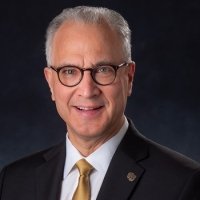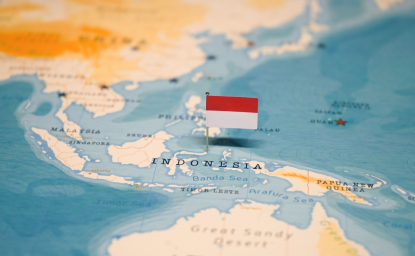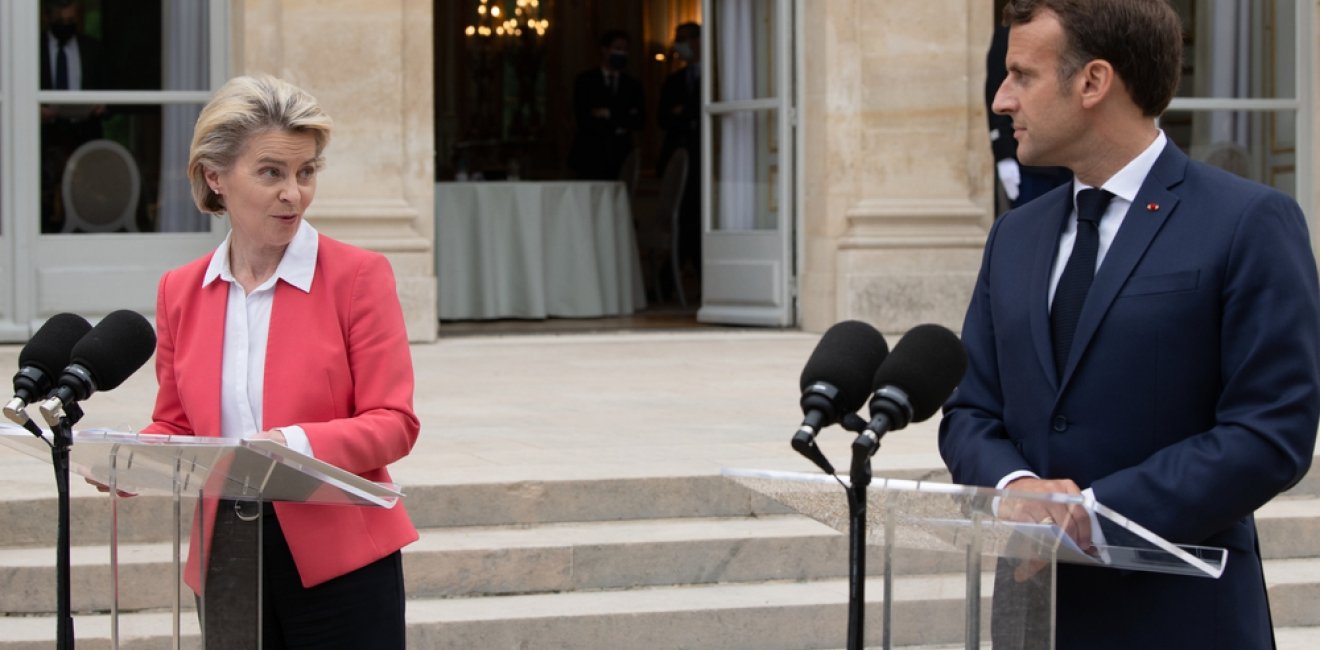During the April 4 visit by French President Emmanuel Macron and European Union (EU) Commission President Ursula Von der Leyen to Beijing, America will be looking for indications of alignment or separation from America’s posture toward the Chinese Communist Party (CCP). At a time when the CCP and Russian President Vladimir Putin are united in contempt of American leadership, the strength of the Atlantic Alliance is of heightened importance, not just militarily, but also economically and diplomatically. Atlantic alignment will be essential to deterring aggression in the Pacific, sustaining the rules-based order, and ending Russia’s current aggression in Ukraine’s favor. At this consequential time, the alliance benefits from having Von der Leyen in a pivotal position and joining the trip.
With Brexit eliminating the UK from having a direct role in the EU, one might expect a return to the historic centrality of France and Germany in guiding the direction of the community. Yet with Berlin and Paris disagreeing on more than they can agree on, the role of the commission president, especially during the tenure of Von der Leyen, has been elevated. Her position has been granted greater authority and she has shown able leadership in marshalling a collective EU response to COVID and to Russia’s invasion of Ukraine. As an active participant in G7 summits, she has contributed to the central role it has played in Ukraine and in addressing global food security, health, climate, and infrastructure challenges.
Von der Leyen's more assertive stance on foreign policy helps balance equivocation by its prime national leaders amidst China’s charm offensive, seeking to drive a wedge between Europe and America. It likely better reflects the collective EU view. Not unlike America’s divisions and difficulty in decision making on many matters, the European national leaders’ policy positions toward the CCP lack clarity.
German Chancellor Olaf Scholz’s visit to China last November showcased the primary role economic factors have long played in Germany’s decision making. Since the opposition now embraces a “systemic rivalry” stance toward the CCP, it represents a shift closer to the American view. The pace of Scholz’s promised strengthening of Germany’s military has been disappointing.
Macron’s penchant for seeking to be the mediator was on vivid display during a meeting in Paris on February 15 when he and China’s top diplomat, Wang Yi, expressed that they had "the same objective of contributing to peace" in Ukraine "in accordance with international law." Macron has always been the loudest voice for seeking Europe’s “strategic autonomy” from the US. Yet France agreeing with the UK to coordinate on naval carrier deployments to Asia suggests even autonomous action would focus on Asia.
The US has long benefited from the UK balancing against the typically more ambivalent Carolingian partners in responding to belligerent actors. Even though no longer a member of the EU, the UK still plays that role. The Financial Times reports that “London’s activism has … been a mixed blessing for Berlin and Paris at a time when the two continental powers’ leadership is wavering in the face of military threats from Vladimir Putin.” This has accentuated the division within the EU where many of the nations in Eastern Europe align more with the UK and Poland on security matters.
Von der Leyen has been focused on understanding the varying positions of national leaders and finding a path to unified action by the bloc’s 27 disparate members. Staying attuned to her stated positions is therefore likely the best indication of eventual EU stances.
As she prepared to depart for China, Von der Leyen gave a speech last week while sitting next to the executive director of MERICS, a think tank sanctioned by the CCP. She espoused a view not dissimilar to that being advanced by the Biden Administration, asserting that the CCP had become “more repressive at home and more assertive abroad” and observed “[T]he Chinese Communist Party's clear goal is a systemic change of the international order with China at its center.” Von der Leyen noted that any proposal “which would in effect consolidate Russian annexations” of Ukrainian territory “is simply not a viable plan.” She acknowledged that China’s “explicit fusion of its military and commercial sectors” poses risks to European security and called for de-risking commercial ties. Von der Leyen effectively ended the idea of enacting the EU-China investment agreement upon which the two sides had agreed in principle in 2020. With the CCP in mind, she trumpeted “new rules that aim to make it easier to retaliate against countries that try to use trade or investment restrictions as a pressure tactic.”
Von der Leyen’s remarkable and varied career has included time in America. She has an American great-grandmother from Charleston, South Carolina. She earned degrees in both economics (including from the London School of Economics) and medicine. The mother of seven lived in California from 1992 to 1996 while her husband was on the faculty at Stanford. After being elected to the both the State Assembly of Lower Saxony and the national Bundestag, she was the first woman to serve as Germany’s Defense Minister and as the President of the European Commission.
America needs Europe as a partner in its strategic competition with authoritarian rivals. It must better reflect this in its own actions by proactively coordinating economic statecraft measures and avoiding further government incentives that discriminate against Europe. Here’s hoping the discerning leadership of EU Commission President Von der Leyen that has strengthened the alliance to date is on display in Beijing and beyond.
Author


Wahba Institute for Strategic Competition
The Wahba Institute for Strategic Competition works to shape conversations and inspire meaningful action to strengthen technology, trade, infrastructure, and energy as part of American economic and global leadership that benefits the nation and the world. Read more


Global Europe Program
The Global Europe Program is focused on Europe’s capabilities, and how it engages on critical global issues. We investigate European approaches to critical global issues. We examine Europe’s relations with Russia and Eurasia, China and the Indo-Pacific, the Middle East and Africa. Our initiatives include “Ukraine in Europe”—an examination of what it will take to make Ukraine’s European future a reality. But we also examine the role of NATO, the European Union and the OSCE, Europe’s energy security, transatlantic trade disputes, and challenges to democracy. The Global Europe Program’s staff, scholars-in-residence, and Global Fellows participate in seminars, policy study groups, and international conferences to provide analytical recommendations to policy makers and the media. Read more

Explore More
Browse Insights & Analysis
A Case for a North American Common Tariff

Ukrainian Issue in Polish Elections




